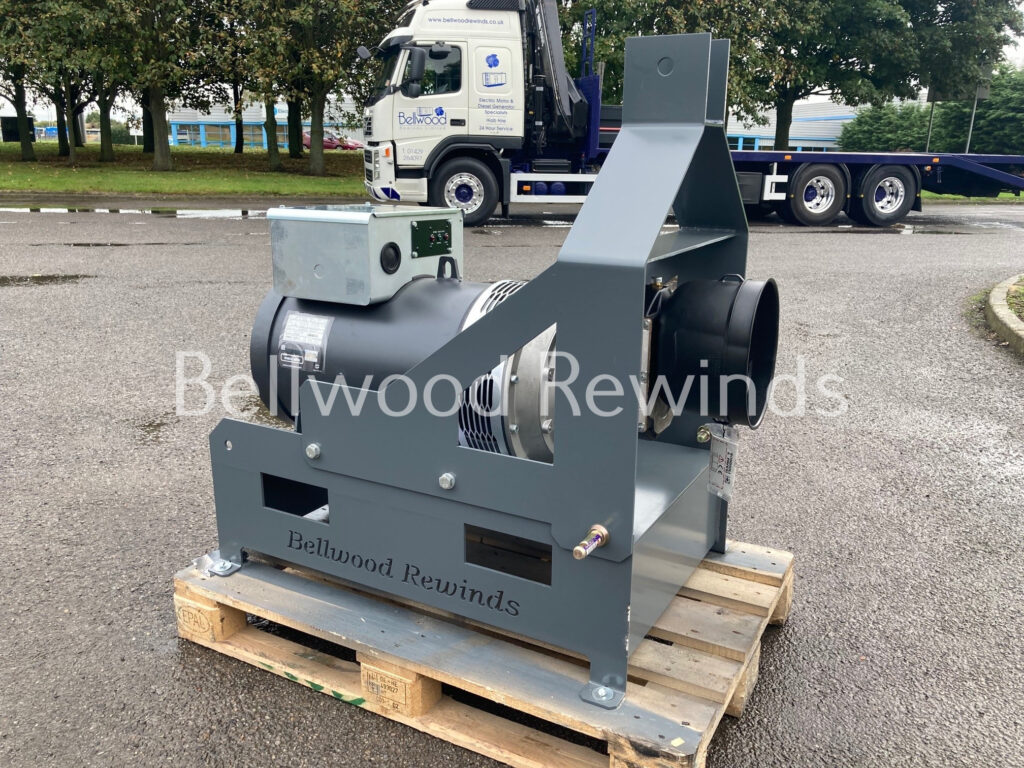We Buy Your Generator
- Finance Available, on all new generators.
Generators come in different shapes and sizes whilst running on various fuel types, including Diesel, Gas, Biofuel and HVO (hydrogenated vegetable oil). Failure to properly maintain them can lead to unexpected breakdowns at incalculable costs to operations. When you buy new machinery, the manufacturer will include maintenance instructions. Important upkeep must be performed at regular intervals by trained professionals. Any manufacturer’s guarantee is null and void if a breakdown occurs because of improper maintenance.
Generator Failure never occurs at a convenient time and frequently interferes with normal business procedures. Medical facilities and data centres, which must never fail, use generators in N+1 or N+2 configurations with backup UPS power. In this scenario, the UPS (Uninterruptible Power Supply) will carry the load in the event of a power outage or generator failure. In the meantime, the backup power generator is switched on and begins operation.
It is common for power-dense installations to have applications that cannot function with uninterruptible power supplies (UPS) or N+1 systems. These are dependent on a lone power supply. As soon as this generator stops working properly, chaos will ensue. This does not guarantee that a highly protected or complicated system will never fail, but it helps lessen the likelihood and make it more resilient if it does.


There is a wide variety of causes for generator failures. For instance, a generator’s battery can die on the job. A generator’s batteries often give out, causing the device to stop working. If this happens, don’t hesitate to call us so we can assist you.
When a generator fails, misuse is a common cause. The same holds true for generators; excessive use greatly raises the chance of failure. We advise having your generator(s) checked every six months or after 500 hours of operation, whichever comes first. Inadequate maintenance is another common cause of generator breakdowns, highlighting the importance of scheduling regular generator servicing (s).
The fuel filter being clogged is another possible cause. A clogged fuel filter poses a threat to your generator’s health. Not only will your generator stop working if fuel contamination occurs due to the obstruction, but the blockage itself might be hazardous.
Should I Repair or Replace my Generator?
Every Generator has an estimated lifespan, some longer than others. But that depends entirely on how effectively the machinery has been maintained over its useful lifetime. Replacement costs should be factored into repair costs whenever possible. Let’s discuss the benefits of each….
Standby generators, in particular, are crucial and must be dependable. Routine maintenance can assist, but there may come a time when even the smallest parts of the system fail. All the little things can be refurbished, but you should consider whether it’s better to buy a new one. While the underlying physics is the same, fuel technology has advanced significantly.
Modern engines are more fuel efficient and use less fuel to operate, significantly affecting the cost of maintaining your generator (this is often the main expense when owning a generator). Low-emissions engines can be installed in today’s generators, drastically reducing their environmental impact. Non-road mobile machinery (NNRM) Directive-compliant or London Ultra Low Emission Zone-compliant regions can utilise generators that meet Stage IIIa or Stage V standards. Again, this may be less of a concern if you plan to use your generator primarily as a backup system. Many older facilities haven’t planned for what would happen to the environment if a significant amount of diesel were to leak out. Diesel storage tanks must now be fireproof and bunded (double-skinned) per rigorous standards. An upgrade may be necessary if your generator installation is not up to code. If your system develops a malfunction, you may be in for some difficult times.
Power generators are a significant investment for any company because of their high cost. Given that little has changed regarding the basic design of generators in a very long time, yours may still have a good long while before replacing it. Repairing or refurbishing your generator may be the best action if it is utilised for backup power while replacing an older unit is usually the best choice for primary power. Did you know at Bellwood Rewinds, we buy your old generators? For more information on that, get in touch with our team today.
In order to determine the right course of action, Bellwood Rewinds can provide price quotes for both services; however, we recommend first having a thorough generator/installation health check and report performed. We fix, recondition, and provide estimates for new generators and their installations.
Generator maintenance, however, is an involved operation that calls for special attention. If all you need is the engine filters changed, you might as well change them yourself. Alternatively, you can shop among the several available generators, any of which will serve you well for years to come.
There is widespread misunderstanding in the generator industry about what should and should not be done on-site. In fact, these are the bare minimums recommended by the vast majority of manufacturers:
Should your generator happens to break down, don’t panic!
Depending on the problem, it may be something that you can fix yourself or require a generator professional‘s help. In either case, make sure to properly maintain your generator to avoid future breakdowns and expensive repairs. If you need help repairing your generator, contact Bellwood Rewinds today. We would be happy to help you get up and running again.
Telephone 01429 264 097